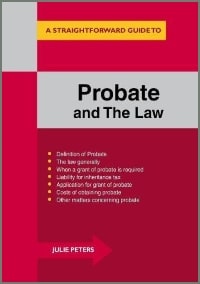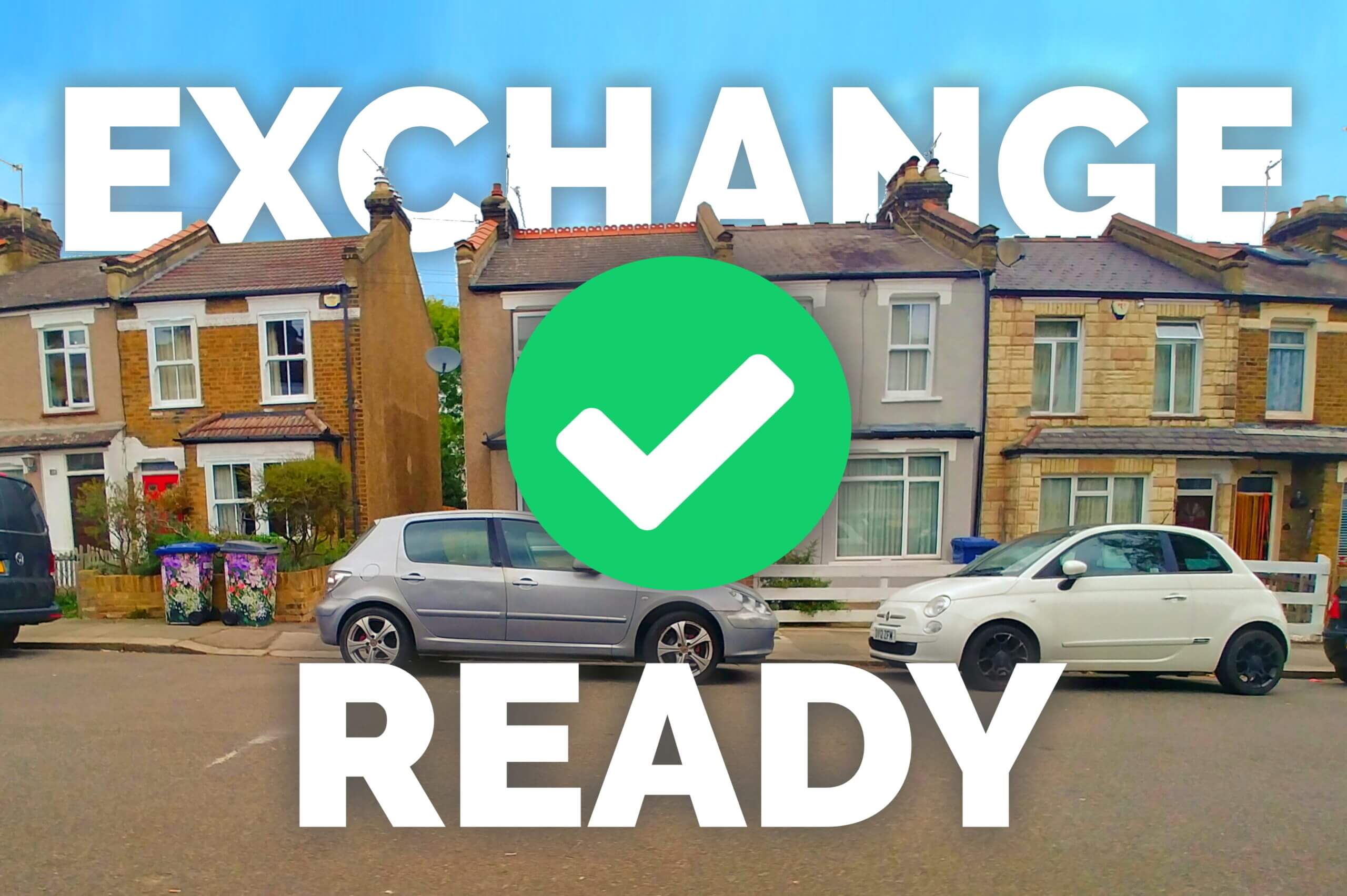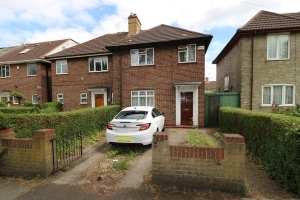Selling an Inherited Property?
The process for selling an inherited property involves some additional formalities to ensure all beneficiaries in the will (and HMRC) receive their full share of the asset. The sale needs to be seen as fair and transparent – that’s why an auction sale is very popular for inherited properties.
For your peace of mind we are a member of The Property Ombudsman.
Call 0800 862 0206 for your FREE sale price estimate
This guide is intended to provide executors with an overview of the process for selling an inherited property, it deals specifically with the sale of inherited properties in England and Wales. The information and examples provided are intended to help executors complete their duties as quickly and efficiently as possible.
Last updated by Mark Grantham on 2nd October 2022
🔲 What is an executor?
An executor is a person appointed in the will of a deceased person to carry out the terms of their will. Most wills appoint two executors (joint executors). An executrix is the female term, sometimes the gender-neutral term “personal representative” is used in place of either executor or executrix.
The job of an executor includes various duties, staring with locating and understanding the will and finishing with distributing the assets of the estate. And whilst the role can seem quite overwhelming to begin with, when it’s broken down into separate parts it becomes much easier to deal with. It can be a good idea to pass some responsibilities to a solicitor, particularly where complex wills are concerned. However, it’s important to retain control over other important aspects, particular the sale of any high value assets, as this guide explains.
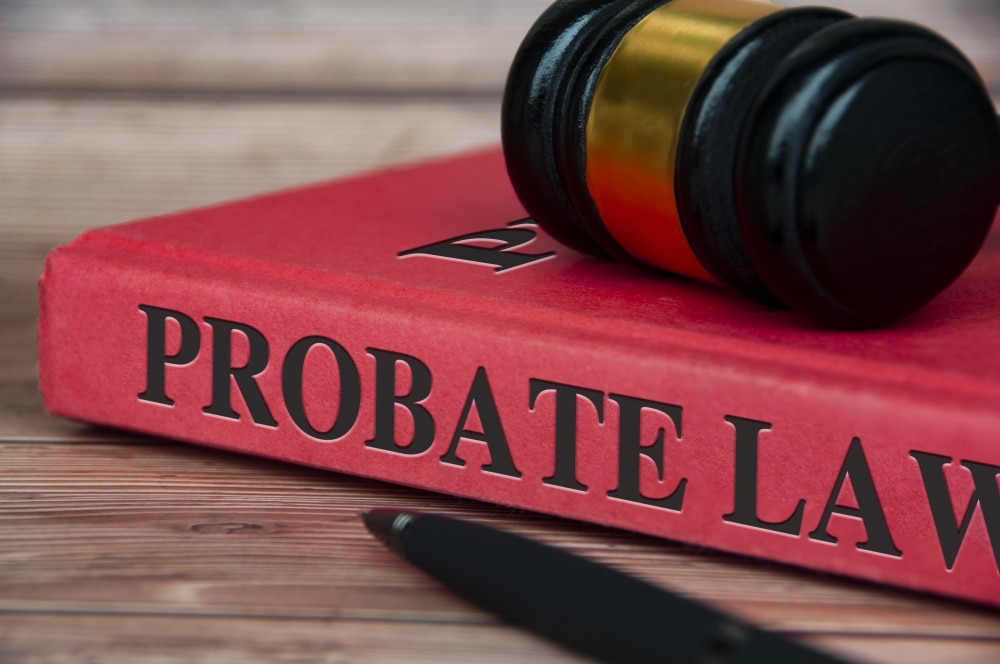
Table of contents
▷ What’s the timescale for selling an inherited property?
▷ Can an inherited property be sold before probate is granted?
▷ What’s involved in applying for probate?
▷ How should an executor value a property for inheritance tax purposes?
▷ How much does it cost to sell an inherited property?
▷ Are the services of a solicitor needed to sell an inherited property?
▷ Is stamp duty payable on inherited properties?
▷ Do inherited properties have to be sold?
▷ Issues to consider when renting out an inherited property
▷ What taxes are due for inherited properties?
▷ Tips for maintaining an empty property
▷ Should I pass all my executor duties to a solicitor?
▷ Is it worth carrying out repairs before selling?
▷ What to expect when selling a retirement
▷ Why do people sell inherited properties at auction
▷ Should executors accept offers received via their solicitor?
▷ Probate guide books and further information
► Next steps – Request an auction sale estimate
The delaying factor when selling an inherited property isn’t the sales and marketing side of things, but the time taken to sort out the estate (assets and belongings) of the deceased in accordance with their will. That process is known as probate.
If the will is straightforward (or if there is no will, so long as the beneficiaries of the estate are obvious i.e. spouse or children) the timescale for obtaining grant of probate can be as soon as one or two months.
If there are no complications with the will or the property, then an inherited property can be sold within as little as two months and the proceeds of sale distributed to the beneficiaries upon completion of the sale.
Complicating factors for obtaining grant of probate (e.g. family disputes, difficulty finding paperwork, complex estates/tax affairs or lazy solicitors) will cause obvious delays. It’s not unusual to see probate take the best part of a year. And without probate, it’s not possible to exchange contracts on the sale of an inherited property.
In a word, no! A property cannot be legally sold before probate is granted. However, it is possible to instruct an estate agent to advertise a property for sale before receiving probate. It’s quite common for inherited properties to be put on the market with an estate agent soon after the death of the owner and for the contracts of sale to be ready for exchange by the time grant of probate is received.
When selling an inherited property at auction it’s best to make sure you’ve received the grant of probate before advertising the property. Even if you’re certain the grant will arrive before auction day (when contacts of sale are exchanged) if you’ve forgotten to tick one box in your application for probate, or if there is a query from the probate registry office then the grant could be delayed for a month or two. So rather than incur the expense and wasted time of an aborted auction sale, it’s safer to wait for grant of probate to be received.
Probate is the process of proving a deceased person’s will is valid and giving authority for the assets in the estate to be sold or distributed to the beneficiaries. Note that the terms “grant of probate” and “grant of representation” are effectively used to describe the same thing.
To apply for the grant of probate the executors will need to: (1) complete two forms (the probate application form called a PA1 and the Inheritance Tax form), (2) provide an official copy of the death certificate (3) the original will along with 3 copies and (4) the application fee of £215.
The forms to apply for probate are available on the government website.
The documents need to be sent to your local Probate Registry. Soon after receiving the forms the probate office will send an oath and details of how to arrange a face-to-face appointment. There are two ways to swear the oath, either (1) at the local probate office, or (2) at an office of a commissioner for oaths (usually a solicitor).
As long as everything is in order executors can expect to receive the grant of probate within 10 working days of swearing the oath.
A key part of probate is calculating the amount of tax due to the government, as such the executor will need to estimate the value of the deceased person’s property and calculate how much inheritance tax is due, if any. To determine the value of any property in the estate, the recommendation is to either (1) appoint a professional surveyor, who will charge a fee for their valuation or (2) request free valuations from local estate agents. The most common method is to ask three different estate agents for free valuations and then take the average of the three.
It’s important to ask for valuations in writing (email is fine) for your records. And when asking estate agents to value a property it’s important to let them know the purpose of the valuation. Estate agents can sometimes be a bit too enthusiastic with their valuations to win instructions from clients. If estate agents know you are looking for a valuation for inheritance tax purposes they will be more realistic about the value of the property.
In our experience probate valuations tend be on the low side, which can be helpful when it comes to calculating any tax due.
To request a free probate valuation please contact us.
One off costs include: house clearance from £100 upwards depending on the type/value of furniture and belongings. And an Energy Performance Certificate (EPC) if the property doesn’t already have one, costing around £50.
Costs for maintaining the property include council tax, gardening work and insurance. These costs are paid on a periodic basis, so the longer the property remains unsold the higher the final cost will be.
After the property is sold executors should expect to pay a commission to the sales agent (estate agent or auctioneer) of around 2% + VAT of the final sale price. And legal/conveyancing fees of around £1,000 for the average property.
Legal service 1: Probate solicitor
Executors don’t necessarily need to use a solicitor for probate services, in fact a lot of money can be saved if the work is done without one. It’s not unusual for solicitors to charge up to 5%+VAT of the value of the estate for probate work, hence why DIY probate has become more popular. If you want to carry out the work yourself (or even part of the work) and save on costs then it’s worth reading around the subject first. There are a few probate guide books worth considering.
Legal service 2: Conveyancing solicitor
As with any property sale, it’s advisable to use a solicitor or licensed conveyancer to undertake all the legal work associated with selling. Even though it is possible for vendors and executors to carry out their own convening work it’s not advisable in most cases given the value of property at stake. Conveyancing by itself is complicated enough and with ever increasing levels of property fraud, by anyone’s standards it’s worth paying for professionals to handle the sale, even if it’s just for peace of mind.
Being a property landlord is no easy task; executors should carry out the same assessment as any other landlord would; considering the rental demand for the property, the cost of upkeep and increasing burden of legislation on buy-to-let landlords. Also bear in mind that inherited properties are often not in the best state of repair, so bringing the property up to a fair standard could be costly, especially if gas and electricity systems need to be replaced to meet current safety standards.
Inheritance tax – executors are responsible for calculating the amount of inheritance tax due to HMRC. As of 2017/2018 inheritance tax is payable at a rate of 40% on estates valued over £325,000. Payment of inheritance tax is due within 6 months of the death of the deceased, after which HMRC will begin charging interest on the amount due. The estate won’t have to pay tax if all assets pass to the deceased person’s spouse or charity.
Capital Gains Tax – if there is an increase in the value of the deceased person’s property from the time of death until the time of sale then Capital Gains Tax (CGT) might be liable. For example, if the value of a property increased by £20,000 between the time of death until the time of sale then CGT would be payable on the gain less a £11,300 CGT allowance (correct at 2017/2018). The CGT amount would be 28% of (£20,000 less £11,300) £8,700 = £2,436. However, executors may qualify for a full exemption during the administration period – i.e. the time it takes to settle the deceased persons affairs and obtaining grant of probate. The exemption period is the year of death and the following 2 tax years.
Empty properties represent a higher insurance risk, so it’s important to make sure the insurance company are updated with the status of the property. Be prepared to pay a higher insurance premium, vacant properties represent a higher risk to insurers and premiums can be up to 3 times higher than occupied properties.
A requirement of an empty property insurance policy will most likely require the property to be inspected every week or two, for the letter box to be sealed, for utilities to be turned off and water system drained down.
Apart from all the form filling, one of the main gripes for executors is having to inspect and maintain the deceased person’s property until the time it’s sold. It’s an important responsibility, and not just for insurance purposes. If an empty property is not inspected on a regular basis any problems that haven’t been dealt with can quickly get out of hand. For example, a broken window can be a sign to vandals or squatters that a property is empty, so becomes a target for attack. Attending to these kinds of issues and keeping the garden from overgrowing should be a top priority. If the neighbours are known and trusted then it can be worthwhile asking if they will keep an eye on the property as well.
Vacant properties without a mortgage (or any other loans/charges) secured on them are particularly vulnerable to title fraud because correspondence to the property might not reach the owner in good time, or might be intercepted in the post.
Land Registry have launched a free service to help property owners combat title fraud. The Property Alert Service only takes a few minutes to set up, it then monitors the title of the property and sends an email alerts when certain activity occurs, so action can be taken if necessary.
If the property cannot be found in the Land Registry database it might be because the property is unregistered. That’s not unusual for inherited properties that have been in the same ownership for many years and were purchased before it was compulsory to register the title of the property. Registering a property is a job best carried out by a solicitor, the turnaround time is approximately 2 months.
But executors should be careful about what responsibilities they delegate to a solicitor. In our opinion, tasks such as the sale of high value assets is something that should be carried out by the executors, not the solicitor. It doesn’t matter how much you trust your solicitor, keep the sale of high value assets in your own hands.
Rather than embarking on a project to modernise the property, we suggest spending the least amount of money possible, limiting the spend to essential repairs only.
Unless improvement work is carried out at trade prices, it’s very difficult to recover the cost of work on resale. And there’s no shortage of buyers looking for a project, especially at auction.
The service charges for retirement properties can be very high, it’s not uncommon to see annual service charges of £4,000 plus other costs such as council tax and utility bills. As such a quick sale would be ideal in order to keep costs down, but unfortunately a quick sale for these types of properties would mean selling significantly below market value, and for that reason it’s unusual to see them selling at auction.
In the not too distant past there have been reports in the national press of unfair practices from the freeholders and managing agents of retirement properties, but most operators have now cleaned up their act. If you encounter problems that cannot be resolved directly with the freeholder it can be a good idea to contact the Leaseholder Advisory Service or the Leasehold Knowledge Partnership.
It’s for this reason that the majority of inherited properties are not in the best state of repair, ranging from unmodernised to severely dilapidated. Selling these types of properties through an estate agent can be difficult because the executor is often motivated to sell fairly quickly and the buyer knows it, so prices are often chipped away stage by stage as problems with the property crop up. The final sale price can end up being very low when selling through an estate agent.
But with an auction the buyer is no longer in control, there’s no opportunity to chip away at the price because bidding can only go one way – up! At auction the buyer has control over the sale, and prospective buyers will offer their best bid based on the potential of the property rather than picking holes and identifying problems with the property. As a result, auction sales often achieve final prices well above expectations, plus the executor benefits from an immediate sale.
In the case of inherited properties, that “extra help” often includes assisting with the sale, or more specifically, introducing a buyer. Even though executors and beneficiaries sometimes want to dispose of an inherited property quickly, executors should be careful when it comes to accepting a “quick and easy” offer. To put it one way, that offer is more often than not from a close business associate of the solicitor!
To be sure of realising the best sale price executors are strongly advised not to give solicitors power of attorney for the sale of any high value assets (e.g. property). And it’s not necessarily because a solicitor might manipulate the sale (to one of their property developer friends – which does happen, a lot!), but because a solicitor’s interests are not always aligned with those of the executor or beneficiaries.
Why sell by auction?
✔ Sell to the highest bidder
✔ Sales don’t fall through
✔ Property “sold as seen”
Quick Help
Find an auctioneer
Need help choosing a local property auctioneer? Call 0800 862 0206 or send us an enquiry online.

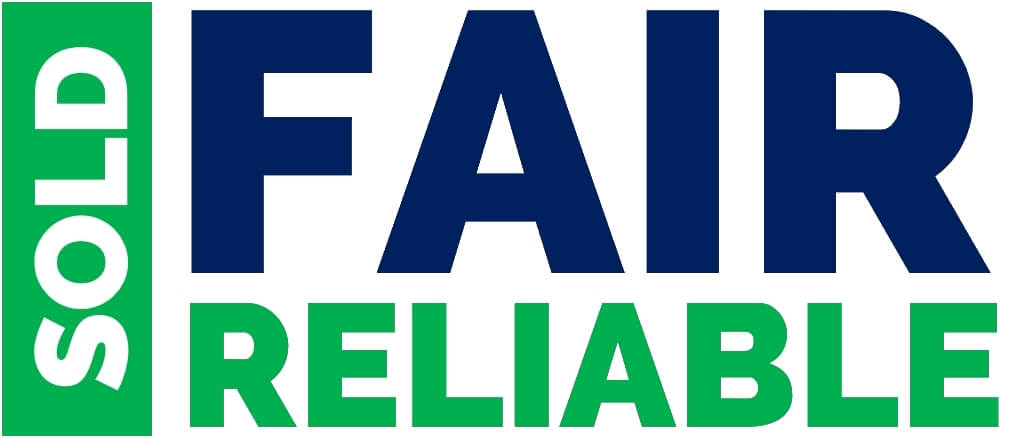
There are a number of useful books available on the subject of probate, with chapters on selling inherited property. Our top picks are:
Have you been approached by an heir hunter?
Finding out you’ve inherited a house – especially through an heir hunter – can be both exciting and overwhelming. If you’re thinking about selling, you’ll need to tackle legal, financial, and logistical considerations. But is selling the best option? Read more about selling an inherited property when approached by an heir hunter.
Author: Julian Knight
Pages: 328 pages
ISBN: 0470756292
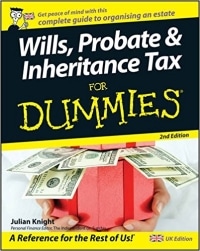
Author: Gordon Bowley
Pages: 194 pages
ISBN: 1845284097
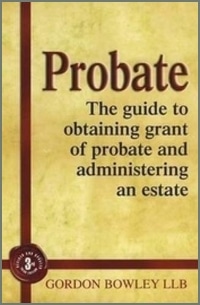
Author: Regina Meizoso
Pages: 134 pages
ISBN: 0995759006
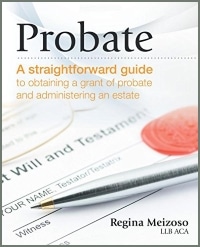
Author: Julie Peters
Pages: 160 pages
ISBN: 184716563X
